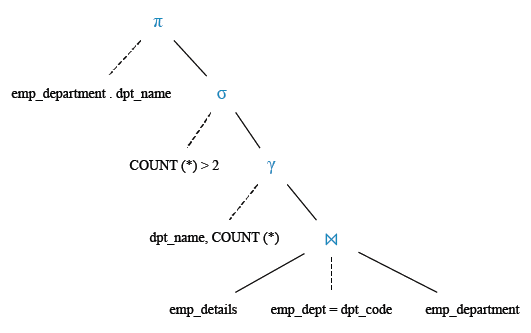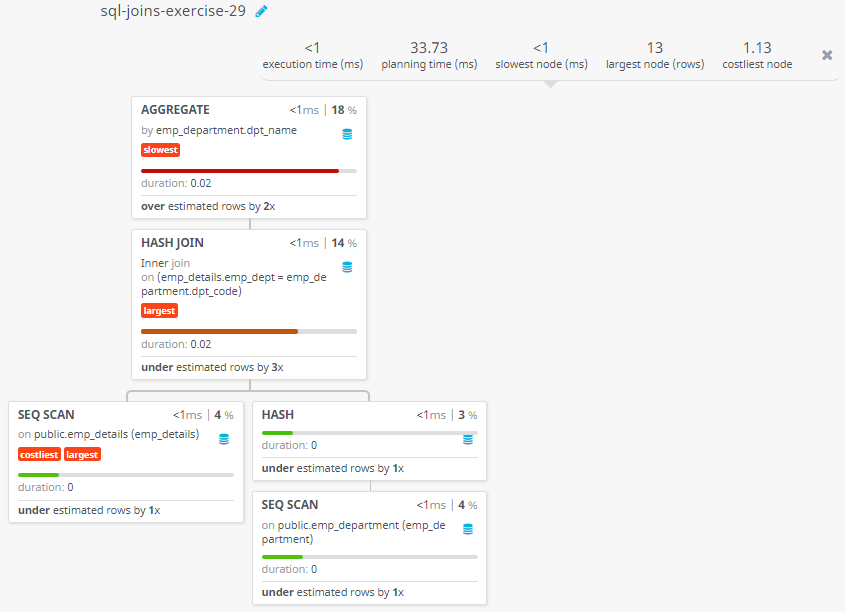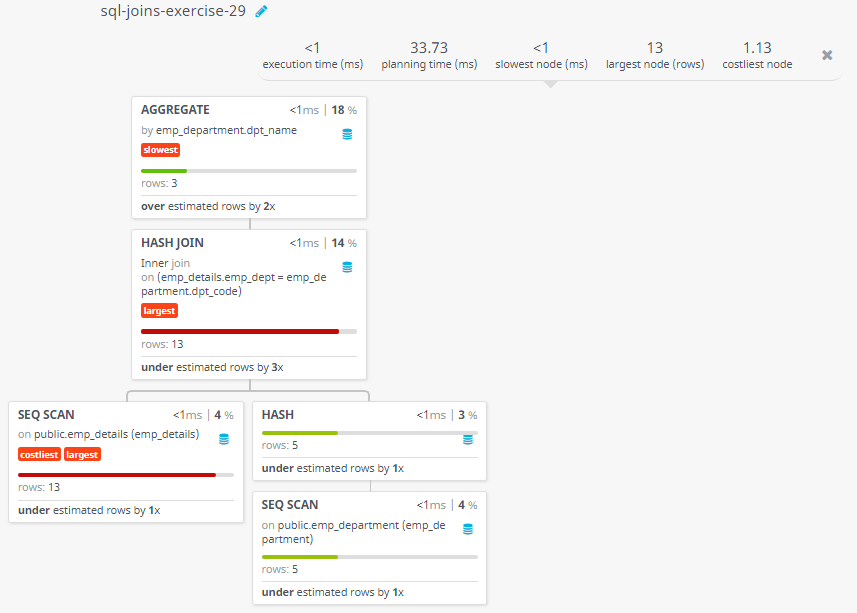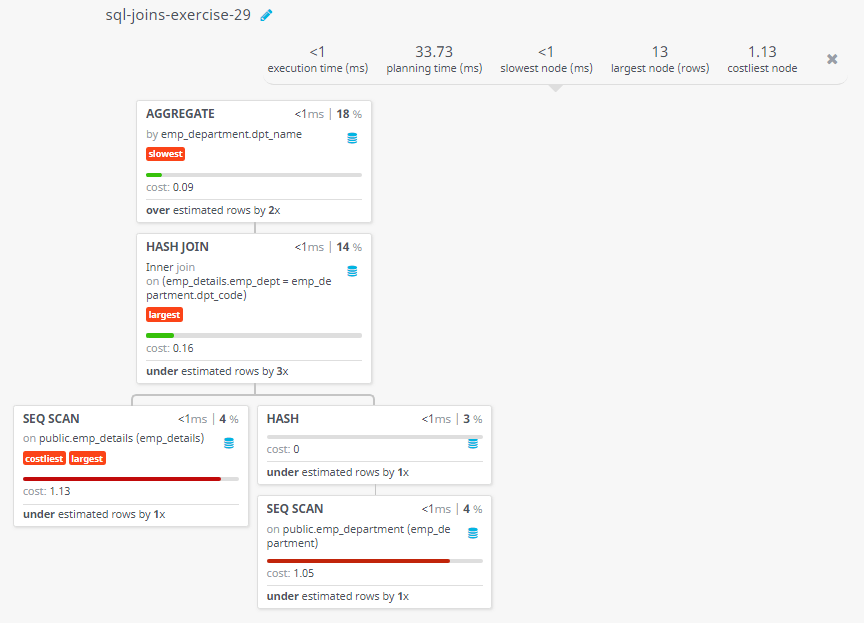SQL Exercise: Departments where more than two employees are working
29. Departments with More Than Two Employees
From the following tables write a SQL query to find the names of departments where more than two employees are employed. Return dpt_name.
Sample table: emp_department
DPT_CODE DPT_NAME DPT_ALLOTMENT
-------- --------------- -------------
57 IT 65000
63 Finance 15000
47 HR 240000
27 RD 55000
89 QC 75000
Sample table: emp_details
EMP_IDNO EMP_FNAME EMP_LNAME EMP_DEPT --------- --------------- --------------- ---------- 127323 Michale Robbin 57 526689 Carlos Snares 63 843795 Enric Dosio 57 328717 Jhon Snares 63 444527 Joseph Dosni 47 659831 Zanifer Emily 47 847674 Kuleswar Sitaraman 57 748681 Henrey Gabriel 47 555935 Alex Manuel 57 539569 George Mardy 27 733843 Mario Saule 63 631548 Alan Snappy 27 839139 Maria Foster 57
Sample Solution:
-- Selecting the department name from the result of an inner join between 'emp_details' and 'emp_department' tables
SELECT emp_department.dpt_name
-- Specifying the tables to retrieve data from ('emp_details' and 'emp_department')
FROM emp_details
-- Performing an inner join based on the equality of 'emp_dept' in 'emp_details' and 'dpt_code' in 'emp_department'
INNER JOIN emp_department
ON emp_dept = dpt_code
-- Grouping the results by the department name
GROUP BY emp_department.dpt_name
-- Applying a filter to the grouped results, including only those with a count greater than 2
HAVING COUNT(*) > 2;
Output of the Query:
dpt_name Finance IT HR
Explanation:
The said SQL query is selecting the 'dpt_name' column from the emp_department table.
This code is joining the emp_details table with the emp_department table on the matching value in the 'emp_dept' column of the emp_details table and the 'dpt_code' column of the emp_department table.
The query also use GROUP BY clause that groups the result-set by one or more columns.
The HAVING clause is used in conjunction with the GROUP BY clause. It is used to filter groups based on a specified condition, in this case, the condition is COUNT(*) > 2, which means it will only return the groups that have more than 2 rows.
It returns the name of the department whose count of employees is more than 2.
Relational Algebra Expression:
Relational Algebra Tree:
Go to:
PREV : High Budget Departments Employee List.
NEXT : SQL SUBQUERIES Exercises Home
Practice Online
Query Visualization:
Duration:
Rows:
Cost:
For more Practice: Solve these Related Problems:
- Write a SQL query to join emp_department and emp_details, group by DPT_CODE, and return DPT_NAME for groups having COUNT(EMP_IDNO) > 2.
- Write a SQL query to display the names of departments that employ more than two employees using GROUP BY and HAVING clauses.
- Write a SQL query to select DPT_NAME from emp_department where a subquery counting employees in that department exceeds two.
- Write a SQL query to list department names with over two employees by joining the two tables and filtering with a HAVING clause.
Have another way to solve this solution? Contribute your code (and comments) through Disqus.
What is the difficulty level of this exercise?
Test your Programming skills with w3resource's quiz.





